What Does Mold Smell Like?
Have you ever noticed a musty smell in your house or business? It could be a sign of mold. When we conduct professional mold testing, the smell is often the first clue! Trust your nose to alert you to potential risks.
Most mold in homes is hidden in walls, attics, or other hard-to-see places, like bathrooms. Visible mold spots usually appear on walls only after weeks, months, or even years of contamination. Therefore, your eyes alone are not reliable for detecting mold.
Fortunately, mold odors appear much sooner than any visible signs. While mold odors are unpleasant, they serve as a warning of a mold infestation needing immediate attention.
In many cases, your sense of smell will be your best tool for early mold detection and preventing damage to your home.
Worried About Mold Smells? Get a Free Inspection!
Mold odors can be tricky to identify and harmful to your health. Don’t ignore them! Contact Mold Busters for a free virtual mold inspection. Our experts will provide a comprehensive assessment and plan to address any mold issue, ensuring your home is safe. Act now to protect your space!
How Can You Detect Mold Smells?
The obvious answer is with your nose. However, to be effective, you need to recognize mold odors. So what exactly does mold smell like? The answer is more complex than you might think.
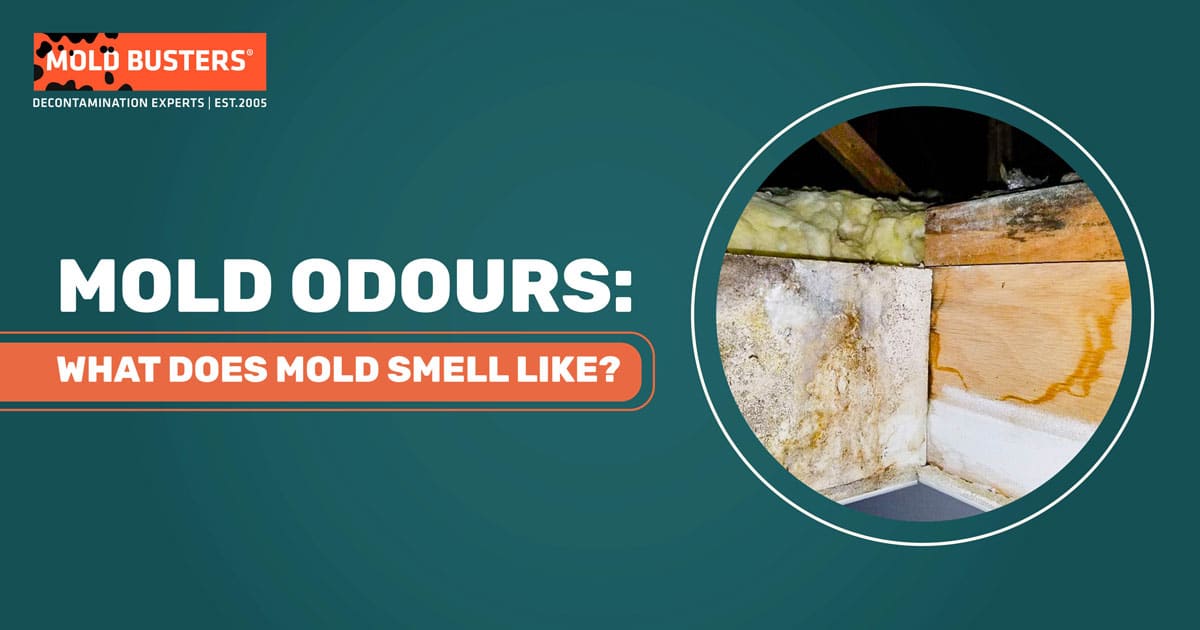
There are thousands of species of mold, each with different colors, textures, and odors. Some molds produce earthy smells, others sweeter smells, and some even smell like fermenting alcohol or rotting meat.
Smells can vary even within a single mold species depending on its digestion, growth, and reproduction stages. It’s important to keep this variation in mind when detecting potential mold smells in your home. Many people expect mold to smell only one way, so they might ignore other odors caused by mold. Remember, you’re not searching for just one particular smell!
What Does Black Mold Smell Like?
Black mold is one of the most toxic types of mold and has a distinct smell. So, what does black mold smell like? It typically has a strong, musty odor similar to rotting wood or damp soil. If you notice this smell in your home, especially in areas like bathrooms or basements, it’s crucial to address it immediately. Black mold may pose serious health risks and requires prompt attention.
Mold and Mildew: Understanding the Differences in Smell
Mold and mildew are both fungi, but they have different odors. Mildew usually has a mild, musty smell, while mold smells can be stronger and more pungent. Mildew vs. mold smell is a common query because many people confuse the two. Mildew tends to grow on surfaces, making it easier to clean mold off hard surfaces, whereas mold penetrates deeper into materials, creating a more persistent smell. Understanding these differences can help in identifying the source of the musty smell in your home.
Does Mold Have a Smell?
Yes, mold does have a smell. It often smells musty, stale, and damp. This odor is due to microbial volatile organic compounds (MVOCs) produced by mold during its growth and reproduction stages. These compounds can make the air quality in your home unhealthy. If you smell musty odors, it’s a sign of potential mold growth that needs to be addressed to maintain good indoor air quality.
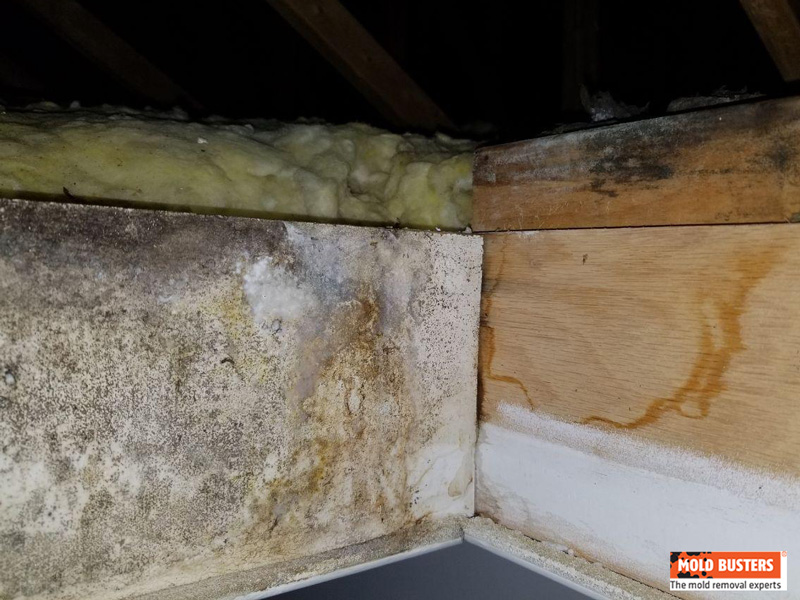
What Causes Mold Smells?
Many people believe all mold smells are caused by mold spores, but this is not true. While some mold odors are caused by spores, most are due to MVOCs produced during mold’s biological processes. These can be byproducts of digestion, growth, or reproduction. Depending on the mold’s life cycle, it may produce different odors or none at all.
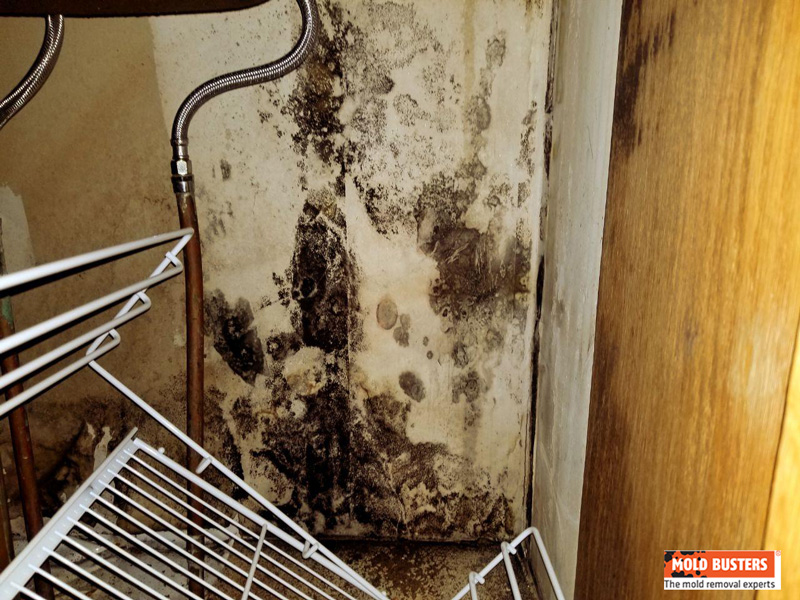
Some think that if they can’t smell mold, it can’t harm them. This is false. Most health risks from mold are due to spores, while most mold odors are produced by MVOCs. During a mold colony’s reproductive phase, it produces fewer MVOCs and more spores, making it most harmful when it smells the least.
While mold odors are a good early warning of growth, you shouldn’t rely solely on your sense of smell to detect mold. The only way to be sure your home is free of mold is to have it inspected by qualified mold professionals. Professionals use sophisticated methods, like laboratory air testing and surface sampling, which are much more sensitive and accurate than your sense of smell.
At Mold Busters, we offer a range of inspection services, including virtual inspections and mold inspection and testing in Ottawa.

Did you know?
Only 6% of tested outdoor air samples didn’t have any presence of mold?! Find out more exciting mold stats and facts inside our mold statistics page.
Does Mold Smell Like Cheese?
Mold can indeed smell like cheese. Certain types of mold produce odors that are similar to the smell of aged cheese. This is due to the compounds released during the mold’s metabolic processes. If you notice a cheese-like smell in your home, it could indicate the presence of mold. It’s important to identify and remove mold as soon as possible to prevent health issues.
Can Mold Smell Like Chemicals?
Yes, mold can smell like chemicals. Some molds produce MVOCs that emit a chemical-like odor. This can sometimes be mistaken for other sources of chemical smells in your home. If you detect a chemical smell and can’t identify the source, it might be due to mold. Addressing this issue promptly can help maintain good indoor air quality and prevent mold-related health problems.
Bad Smell After Mold Remediation
It’s not uncommon to notice a bad smell after mold remediation. This can be due to residual moisture or MVOCs released during the cleanup process. If the smell persists, it could indicate that the mold wasn’t completely removed or that there’s still a moisture problem. Hiring a mold inspector to assess the situation can help ensure the remediation was successful and prevent future mold growth.
Are Mold Smells Harmful?
Mold odors themselves aren’t especially harmful but indicate a mold problem, that could threaten your health if left unaddressed.
Depending on the mold species, spore concentration, and exposure duration, mold can cause various health problems. Symptoms can be mild, such as headaches, nausea, and minor eye or lung irritation, to severe, like potentially fatal allergic reactions, cancers, lung infections, and other serious health issues.
Because mold exposure risks range from mild to life-threatening, eliminating all mold sources in your home is the best way to protect yourself.
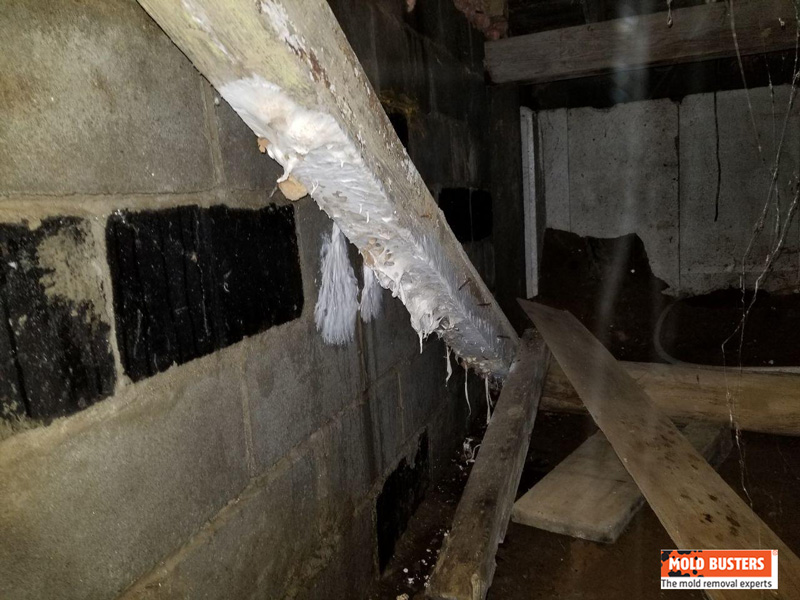
How to Get Rid of Musty Smells?
Avoid the temptation to tackle mold odors with scented cleaners and air fresheners. It’s easy and inexpensive but very ineffective. Cleaners and air fresheners may temporarily cover up mold odors but won’t solve the problem or stop mold growth.
Mold colonies will likely grow if you only cover up odors with scents. While mold odors can be suppressed with air fresheners, the harmful health effects of mold cannot. So, covering up the problem with artificial scents means you continue to be exposed to hazardous mold spores.
The only way to get rid of musty smells for good is to eliminate the mold colonies causing them. For large colonies covering more than 10 square feet, Health Canada recommends hiring mold remediation professionals. Our mold removal services are designed to ensure a safe and healthy environment in your home or business.
For small colonies, it is possible to remove them safely and effectively on your own with the proper equipment and precautions:
- Protect your lungs from mold spores, which can become airborne with the slightest disturbance. Wear a mask or respirator and safety glasses.
- Prevent spores from spreading by wearing a plastic hazmat suit. Mold clings to clothes and fabrics, especially those high in cotton.
- Prepare a cleaning solution using vinegar, bleach, or a specialized mold cleaner. Scrub the affected area with the solution and pat dry. Dispose of any cloths or sponges used for cleaning, as they can become breeding grounds for mold.
Why Should You Hire Professionals to Get Rid of Mold Smell?
Mold cleanup is complicated and time-consuming. Contrary to popular belief, mold is very difficult to eliminate without the proper experience and equipment. Mold spores spread easily if disturbed, potentially leading to more colonies.
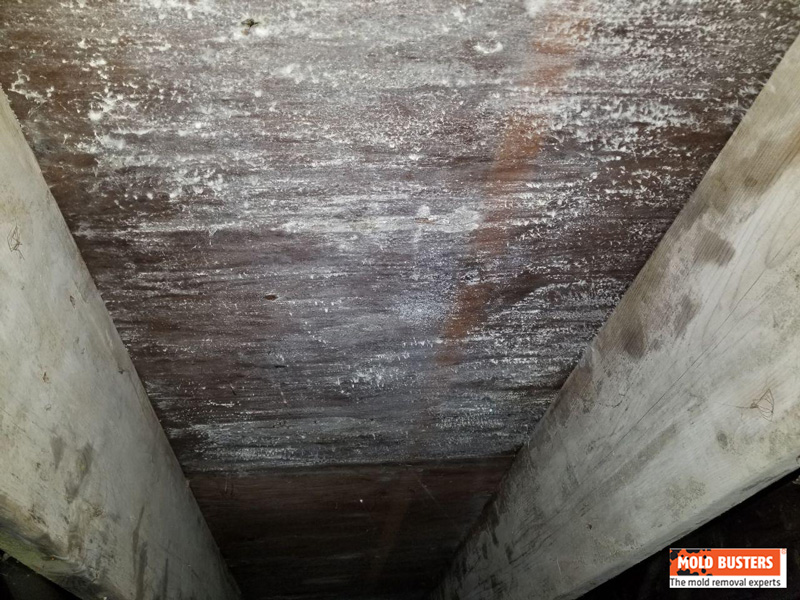
Cleaning only visible mold likely misses larger colonies hidden from view. This hidden mold will continue growing and spreading spores, causing mold spots to return after cleanup.
Mold cleanup alone doesn’t fix the problems that caused the mold to grow initially, such as insulation issues or moisture build-up from leaking pipes. These problems must be addressed to prevent mold from returning.
Hiring qualified mold remediation professionals is the best way to remove larger mold problems. They conduct thorough inspections to identify contamination extent and plan safe, effective removal processes. Our teams in Montreal and Ottawa use the latest technology and training to handle mold issues of all sizes.
At Mold Busters, we use sophisticated air testing, infrared scanning, third-party laboratories, and other techniques to detect mold throughout your house. We adhere to rigorous standards to prevent cross-contamination and address moisture problems that led to mold growth, preventing mold from returning after cleanup.
Conclusion
Mold odors are a nuisance but a helpful one because they warn us of mold colonies in our homes before they become visible. Always take mold odors as a sign to investigate further. Call Mold Busters, certified mold professionals for help.
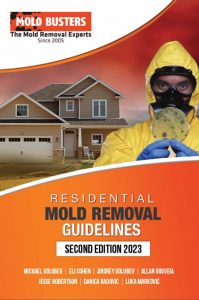
Get Special Gift: Industry-Standard Mold Removal Guidelines
Download the industry-standard guidelines that Mold Busters use in their own mold removal services, including news, tips and special offers:
"*" indicates required fields
Published: April 18, 2019 Updated: July 17, 2024

Written by:
John Ward
Account Executive
Mold Busters
Fact checked by:
Michael Golubev
CEO
Mold Busters
